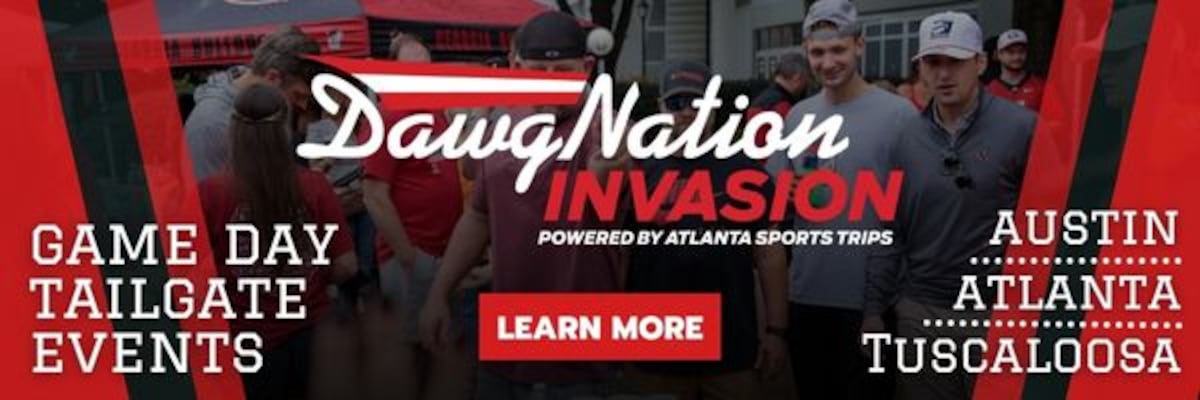ATHENS, Ga. — When Terrence Edwards arrived at Georgia almost two decades ago, he encountered major adjustments moving from quarterback, where he played in high school, to wide receiver. It just wasn’t the adjustment he anticipated.
Running routes and catching the ball was the easy part. But there are other things a college wide receiver had to do.
“Most of those guys could run past every defensive back they played against in high school,” said Edwards, who would go on to catch 30 touchdown passes from 1999-2002. “But understanding what college defenses are trying to do for you is a problem you have early on. Even against Nicholls State, you’re still going to go against DBs where you’re going to have to be creative to get separation.”
Football has changed some since then, as has Edward’s alma mater, but this much hasn’t: Receivers still have to do more than just run and make catches.
That’s an evident frustration for Kirby Smart and his staff after the first two games, as receivers have struggled to get separation, and struggled even more to block.
“The physicality of the receivers right now is not where it needs to be,” Smart said. “We’ve got to block better. A big part is separation, but more important to me is their ability to, when we spread people out, to be able to go block people and go hit them. When we can’t do that, we can’t put them on the field.”
The blocking deficiencies at receiver were on full display last Saturday, as Georgia failed to open lanes on the outside. Experience and size are both problems. The team’s two leading receivers from last year are Terry Godwin (5-foot-10) and Isaiah McKenzie (5-7). That leaves more inexperienced players, such as Michael Chigbu and Jayson Stanley, on the field just to block, and it’s why Godwin (the leading returning receiver from last year) has played less than expected, with Chigbu gaining a lot of those snaps.
But Edwards, who was listed at 6-foot and 175 pounds in his playing days, thinks blocking also is a state of mind.
“Blocking can come easy to those who want to block,” Edwards said. “Blocking to me is one of the easier things to do as a receiver. Because it takes no talent to block. Point blank and simple.”
Smart seems to agree.
“There’s only one ball on the field and it can only go to one person. The other 10, or nine if you take the quarterback out of it, have got to block somebody,” Smart said. “And that’s an area where we’ve got to improve at wideout. They’ve got to improve their physicality, not just their ability to get open.”
But the getting open part needs improvement, too.
Georgia’s wide receivers have combined for 19 catches this year: Isaiah McKenzie (8), Chigbu (5), Godwin (4) and Reggie Davis (2).
That’s an average of 9.5 catches for wide receivers over Georgia’s first two games. That’s almost exactly the average for wide receiver catches last season — 9.6 — and that offense didn’t exactly put up a lot of point.
Compare that to two years ago, when Georgia’s offense was better: Wide receivers averaged 10.6 catches per game. And the year before, when the offense set records, it was a whopping 13.6 per game.
That’s where experience may come into play. Those 2013 and 2014 offenses had upperclassmen Chris Conley and Michael Bennett. Last year, Malcolm Mitchell, then a senior, accounted for nearly half (58 out of 125) of Georgia’s wide receivers’ catches.
This year’s numbers would be even worse if you took away McKenzie’s three jet sweeps, which counted as catches, and a couple swing passes to Godwin. The point being: When Georgia quarterbacks are taking a drop into the pocket to pass, the wide receivers either aren’t getting open or something else is happening.
That’s where knowing how to use your body and your speed — rather than just having speed — figures in. Edwards pointed to Hines Ward and Anquan Boldin as two good examples.
“I put them on a stop watch; they would not wow you with their straight-line speed,” Edwards said. “But they understood leverage, and how to get in and out of breaks — in less than two step or less.”
Edwards still comes around Georgia’s program and has seen them enough to think things will improve.
“They’re very talented,” Edwards said. “They just need more experience.”



